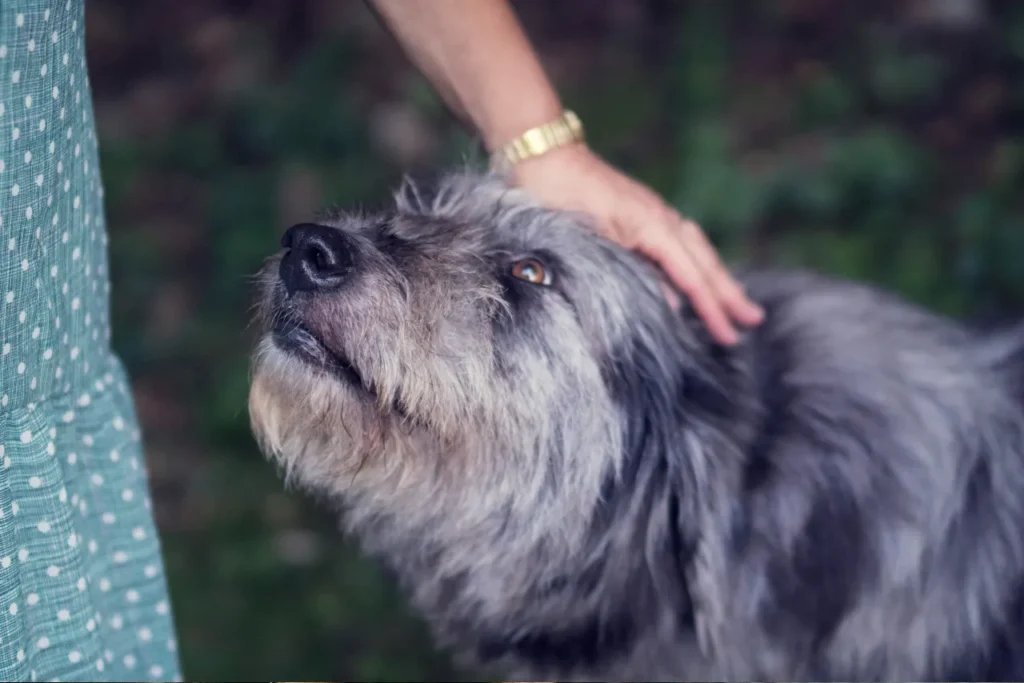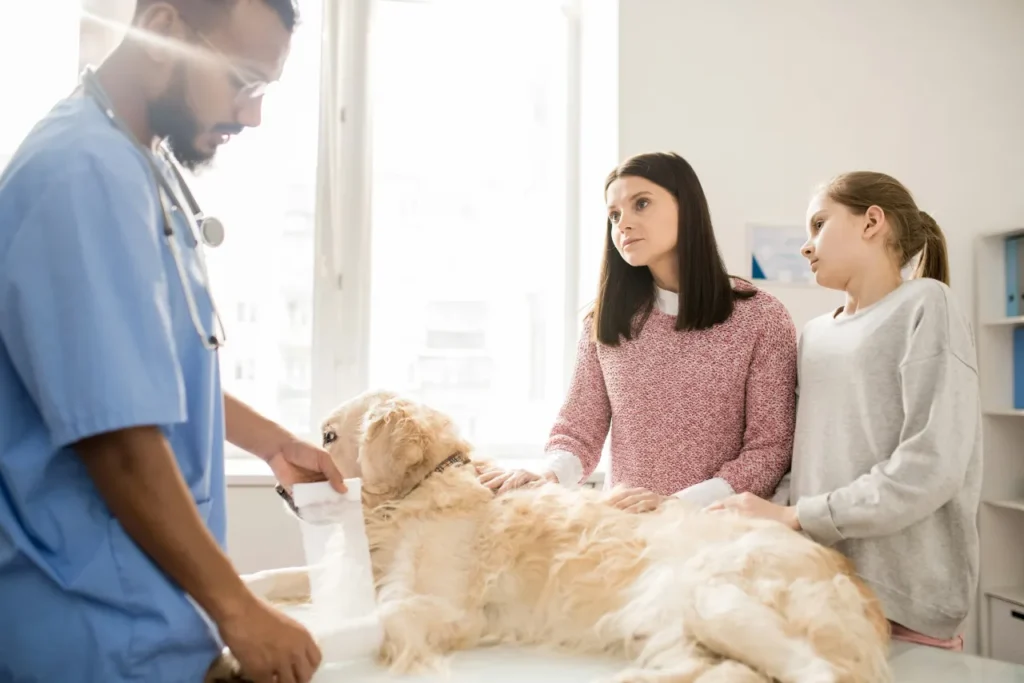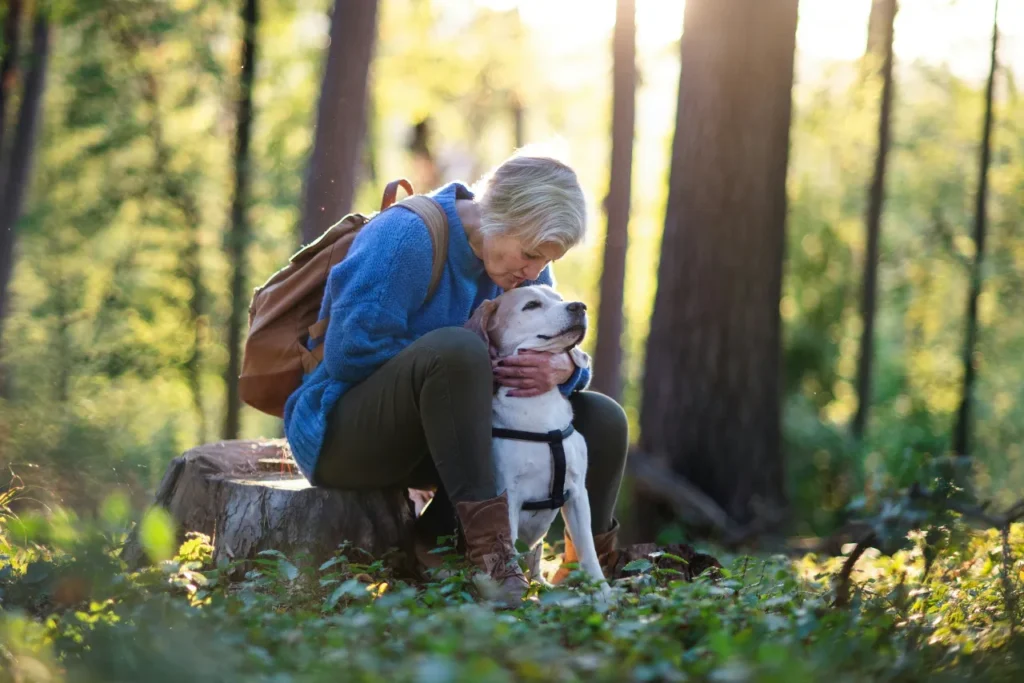Remember when your dog zoomed up the stairs like they had somewhere important to be? These days, they might stop halfway and look at you like, “Are you serious right now?” If you’ve been asking yourself, when is a dog considered a senior, the answer isn’t as simple as counting candles on a birthday cake. It depends on breed, dog’s size, and your pet’s health.
At Off Leash K9 Seattle, we understand the transition into the senior years is a big shift for both you and your pup. Whether you’ve got a spry Chihuahua or a sleepy Great Dane, knowing how dogs age helps you provide the care they deserve as they slow down but still enjoy a happy and healthy life.
How Dogs Age: More Than Just “Dog Years”

We’ve all heard the popular belief that one dog year equals seven human years, but modern veterinary medicine shows it’s a bit more complicated. Smaller breeds and larger dogs don’t age at the same pace, and overall health plays a huge role too.
The Truth About Dog’s Size and Age
A general rule is that small dogs tend to live longer, while giant dogs may develop age-related problems much earlier. The numbers vary, but here’s a breakdown:
- Small dogs (under 20 lbs): Usually considered seniors around age 10 to 12. They often stay spry and playful well into their teen years.
- Medium dogs (20–50 lbs): These pups may be senior dogs by age 8 to 10, depending on their dog’s health.
- Large to giant dogs (50+ lbs): A Great Dane, for example, might be considered a senior by the time they’re 6 or 7 due to faster physical decline.
Why does this matter? Because a 10-year-old Yorkie may still feel like one of the younger dogs, while a 7-year-old Mastiff might already be dealing with medical issues. Knowing when your dog enters their later stage can help prevent health problems down the road.
Spotting the Signs: Is Your Dog Entering Their Senior Years?
Senior dogs don’t just wake up one morning with gray hair and arthritis. The shift is usually gradual. Paying attention to early signs helps you support your aging dog before issues become harder to manage.
Physical Signs That Show Age
As dogs get older, their bodies start to show it. Watch for:
- Weight gain or weight loss: Both can be signs of an aging metabolism or certain diseases like kidney disease or heart disease.
- Vision loss: If your dog is bumping into furniture or hesitating in dim rooms, they may be losing sight.
- Hearing loss: Not responding to voice commands they used to follow could mean their hearing is fading.
- Climbing stairs becomes slower or more difficult, especially for older pets with stiff joints.
These symptoms can develop quietly. That’s why it’s important to know what the first signs of senior status look like.
Behavioral Changes That Matter
Physical aging is one thing. But watch your dog’s behavior too.
- A drop in energy levels can be expected, but sudden disinterest in walks or toys could point to something more serious.
- New behavior changes, like pacing, whining, or sleep disruptions, may signal cognitive decline.
- More anxiety around slippery floors or loud noises could also be a red flag.
Whether it’s avoiding other pets or sticking too close to you, any major shift in how your dog acts should be taken seriously.
Common Health Issues in Senior Dogs

As the body ages, so does the immune system. That opens the door for age-related problems that didn’t exist when your dog was younger.
Health Problems to Watch
- Dental issues: More than 80% of older dogs show signs of gum disease. It affects their comfort, appetite, and long-term health.
- Arthritis and joint pain: Especially common in larger dogs and giant dogs due to their frame and dog’s weight.
- Chronic conditions: Look for signs of kidney disease, heart disease, or diabetes. These may develop quietly and worsen without routine vet care.
Even if your dog seems fine, regular checkups are essential for catching issues early.
Adapting Your Dog’s Diet
What your dog eats can make or break their senior stage. A thoughtful adjustment to your dog’s diet helps maintain a healthier life as they age.
- Switch to senior-specific formulas with fewer calories and more joint support
- Add supplements like glucosamine or omega-3s if your vet recommends it
- Track weight and portion control to avoid unnecessary strain from weight gain
Changes in appetite or digestion can also signal health issues, so monitor how your dog responds to meals.
Supporting Your Dog’s Life Through the Senior Years
The good news is that aging doesn’t mean your dog has to stop living fully. With small changes, your pup can remain mentally active and physically comfortable well into their twilight years.
Exercise Adjustments That Work
Even senior pets need movement. Just less of it.
- Replace long runs with short, leisurely walks
- Swimming is a great low-impact activity that’s easier on joints
- Try indoor games like food puzzles or scent work for mental stimulation
Staying active helps prevent behavior changes caused by boredom or anxiety, and it keeps their muscles from weakening too quickly.
Making Home Life Easier
Your house can be a supportive space with just a few tweaks:
- Add orthopedic beds for sore joints
- Use ramps or pet stairs to help with climbing stairs
- Place rugs on slippery floors so they don’t slip and injure themselves
This stage of your dog’s life is about comfort, routine, and lots of quality time. Those little moments on the couch or calm walks through the neighborhood mean more than ever.
Aging Dogs in Seattle: What to Consider Locally

Seattle weather and terrain bring unique challenges, especially for older dogs.
Coping With the Rain
- Keep walks short and dry with waterproof jackets and paw protectors
- Use indoor enrichment toys on stormy days to keep them mentally active
- Dry paws thoroughly to avoid infections or irritation
Joint pain often worsens in cold, wet weather, so staying warm matters.
Local Support for Senior Pets
- Flat walking trails at places like Seward Park are ideal for older pets
- Mobile vets can check on your pet without the stress of travel
- Hydrotherapy centers support mobility and safe weight loss
Seattle offers plenty of tools to make this stage easier on both you and your dog. You can always bring your pooch for dog training in Seattle at Off Leash K9. Fun does not have an age limit!
We’re Here for Your Senior Dog’s Journey

At Off Leash K9 Seattle, we believe every dog deserves to enjoy their golden years with vitality and joy. While shorter life spans are a reality for some breeds, we’re committed to helping your companion make the most of their active life, no matter their age. Whether you’re noticing sudden changes in mobility, adjusting to sensory challenges, or simply wanting to enhance their daily comfort, our team provides the compassionate support your senior dog needs.
From customized training programs that adapt to their evolving abilities to expert guidance on maintaining their quality of life, we’re here to help you navigate this special chapter. Because every moment with your aging companion is precious, and every stage of their life deserves thoughtful care.
Contact us today to learn more about our senior dog services. Let’s work together to ensure your best friend’s later years are filled with happiness, health, and the same love they’ve always given you.
